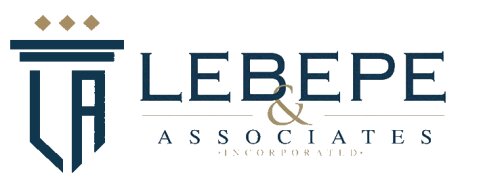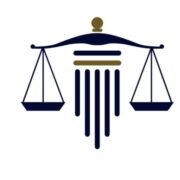Best Water Law Lawyers in Polokwane
Share your needs with us, get contacted by law firms.
Free. Takes 2 min.
List of the best lawyers in Polokwane, South Africa
About Water Law in Polokwane, South Africa
Water law in Polokwane, as in the rest of South Africa, is primarily governed by the National Water Act (Act No. 36 of 1998). This law provides a framework for the protection, use, development, conservation, management, and control of water resources throughout the country. In Polokwane, which is located in the Limpopo Province and known for its semi-arid climate, the sustainable management of water resources is crucial for residents, businesses, farmers, and industries. Water law addresses how water can be used, who is allowed to use it, and what responsibilities water users have. The legislation also defines penalties and procedures regarding illegal or harmful use. Understanding the basics of water law is important for anyone who relies on water for domestic, agricultural, or industrial purposes in the Polokwane region.
Why You May Need a Lawyer
While many aspects of using water in Polokwane are straightforward, several situations may require the assistance of a lawyer who specializes in water law. These include:
- Disputes over water rights or allocations between neighbours or communities
- Issues regarding borehole drilling permissions or groundwater usage
- Conflicts involving pollution of water sources or non-compliance with water regulations
- Challenging government decisions regarding water restrictions or licenses
- Commercial developments needing water use authorizations for operations
- Compliance matters for farmers or businesses with stringent environmental obligations
- Damage claims related to flooding, water diversion, or infrastructure failures
A lawyer can help interpret complex legislation, represent your interests in negotiations or litigation, and ensure you comply with all local and national requirements.
Local Laws Overview
The cornerstone of water law in Polokwane is the National Water Act, which is supplemented by local municipal by-laws set by the Polokwane Local Municipality. Key aspects to note include:
- Water Use Licenses: Significant or commercial uses of water such as irrigation, mining, or industrial processes require formal authorization from the Department of Water and Sanitation.
- Water Restrictions: During times of drought or water scarcity, the municipality may impose restrictions on the use of water for certain purposes (for example, watering gardens or washing cars).
- Borehole Regulation: Drilling a borehole for private or business use often requires notification to or approval from local authorities, including compliance with environmental assessments.
- Discharge Permits: Releasing wastewater or effluent into municipal or natural water sources requires a permit and must comply with quality standards.
- Public Trust Doctrine: All water in South Africa is considered a national resource managed for the benefit of all. This means that water use is subject to oversight even on private property.
Frequently Asked Questions
What is a water use license and do I need one?
A water use license is an official authorization to use water for purposes beyond basic domestic needs, such as irrigated farming, industrial use, or commercial developments. If your usage goes beyond normal domestic consumption, you must apply for a license from the Department of Water and Sanitation.
Can I drill a borehole on my property in Polokwane?
Yes, you may be able to drill a borehole, but you need to comply with municipal requirements and sometimes obtain a permit. You may also need to submit information about the anticipated water yield and intended use and comply with environmental regulations.
What should I do if I suspect a neighbor is illegally diverting or polluting water?
Report the matter to the Polokwane Local Municipality or the Department of Water and Sanitation. If the issue is not resolved, consult a water law attorney to understand your options and to escalate the matter legally.
Am I responsible for leaks or wastage on my property?
Yes, property owners are responsible for maintaining their internal water systems and promptly fixing leaks to avoid wastage and possible fines under municipal by-laws.
Are there penalties for using water during restrictions?
Yes, if you do not comply with municipal water restrictions you may face fines, disconnection of supply, or legal action, depending on the severity and frequency of violations.
Can I use river or dam water for farming purposes?
You require authorization from the Department of Water and Sanitation. Unauthorized abstraction of water from natural sources is illegal and may result in penalties.
How do I appeal a decision to deny my water use application?
You have the right to appeal decisions under the procedures set out in the National Water Act. An attorney experienced in water law can assist you in preparing and submitting your appeal.
What are my rights if my property is damaged by municipal water infrastructure failures?
You may be entitled to claim compensation if municipal negligence caused damage. Consult a water law specialist to help assess your claim and the correct procedures to follow.
Do businesses have additional water compliance requirements?
Yes, businesses often have more complex reporting, monitoring, and licensing obligations regarding water use, effluent discharge, and water recycling. Non-compliance can lead to fines or operational shutdown.
Where can I find official information about water regulations in Polokwane?
Official information can be obtained from the Polokwane Local Municipality, the Department of Water and Sanitation, and environmental management agencies operating in Limpopo.
Additional Resources
If you require more information or assistance regarding water law in Polokwane, consider reaching out to the following:
- Department of Water and Sanitation - regional office for Limpopo Province
- Polokwane Local Municipality - Environmental and Water Affairs Department
- Limpopo Department of Economic Development, Environment and Tourism
- Law Society of South Africa
- Legal Aid South Africa
- University of Limpopo Faculty of Law - for academic inquiries or legal clinics
Next Steps
If you feel your situation requires legal expertise in water law, consider taking these steps:
- Document all relevant facts, communications, and notices regarding your water issue
- Contact your local municipality or the Department of Water and Sanitation for initial guidance
- Consult with a lawyer or legal advisor who specializes in water law - they can help interpret applicable laws, gather evidence, and represent your interests
- If cost is a concern, seek assistance from Legal Aid South Africa or a university legal clinic
- Remain proactive and ensure you comply with all notices and requests for information from authorities
By acting early and seeking the right guidance, you can navigate water-related legal challenges in Polokwane with confidence and clarity.
Lawzana helps you find the best lawyers and law firms in Polokwane through a curated and pre-screened list of qualified legal professionals. Our platform offers rankings and detailed profiles of attorneys and law firms, allowing you to compare based on practice areas, including Water Law, experience, and client feedback.
Each profile includes a description of the firm's areas of practice, client reviews, team members and partners, year of establishment, spoken languages, office locations, contact information, social media presence, and any published articles or resources. Most firms on our platform speak English and are experienced in both local and international legal matters.
Get a quote from top-rated law firms in Polokwane, South Africa — quickly, securely, and without unnecessary hassle.
Disclaimer:
The information provided on this page is for general informational purposes only and does not constitute legal advice. While we strive to ensure the accuracy and relevance of the content, legal information may change over time, and interpretations of the law can vary. You should always consult with a qualified legal professional for advice specific to your situation.
We disclaim all liability for actions taken or not taken based on the content of this page. If you believe any information is incorrect or outdated, please contact us, and we will review and update it where appropriate.











